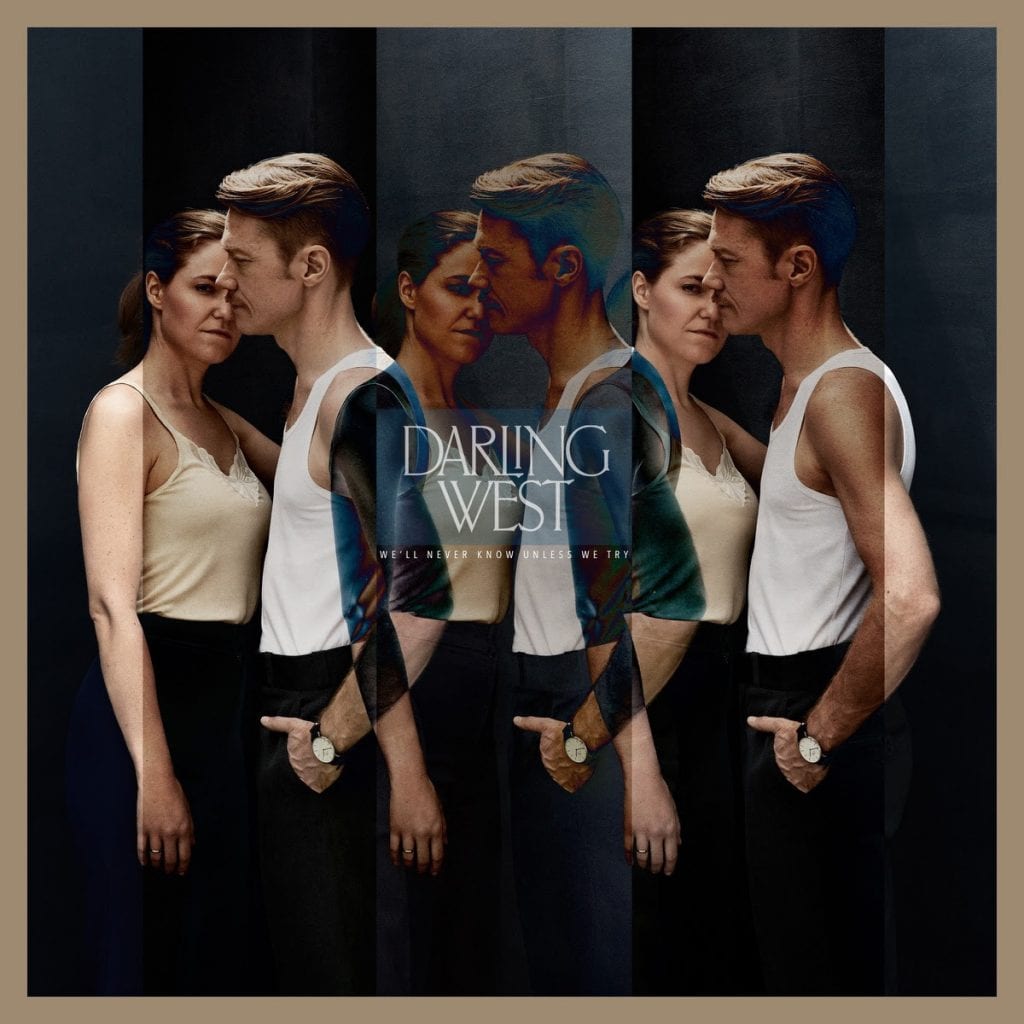Darling West Blends Folk and Digital Sounds for Deeply Felt Album

There can be strength in fusion.
Sure, it doesn’t always work (anyone else remember rap-metal?), but the other side of the coin is jazz fusion, without which we wouldn’t have Return to Forever, or even the scorching, high-test fusion that is bluegrass. Fusion continues apace — you can’t put a lid on human creativity — with clipping.’s insistent noise-rap, Anamanaguchi’s deeply satisfying blending of emo and video game music, and Darling West’s bouillabaisse of folk and digital styles.
Track to track on their latest LP, We’ll Never Know Unless We Try, Darling West — the Norwegian duo of Mari Sandvӕr Kreken and Tor Egil Kreken — maintains a consistent aesthetic, though the constituent elements are more often found in Nashville country, radio pop, singer-songwriter, trip-hop, and folk-rock, just to name a few. It’s fusion all right, and it’s a good one.
Take “Home,” for instance, led by primary vocalist Mari. “In the dim light of a gas station restroom / I see the reflection of what I’ve become / always a day behind, carrying all that’s mine,” she sings over delicate, finger-picked acoustic guitar and lonesome pedal steel. As throughout We’ll Never Know, though, subtle production choices — here, lightly effected instruments and an overall ambient quality — nudge “Home” into a blended genre.
Elsewhere, “River” sounds like a chain gang song recorded in a modern studio. The delicious slide guitar line on “Try” echoes ’90s radio folk, while slow-burn opener “Hey There” rides dramatic swells evocative of chamber pop. For all its sonic variety, there’s a consistent thread of honesty and, dare we say, authenticity to this record. To that end, when Darling West approaches heavy themes, it does so directly, tenderly, and believably.
“I have a friend who I hadn’t seen in years / he lost his youngest one, he told me through his tears / we were already deep into a jug of wine / and suddenly I stopped feeling fine,” Mari sings over banjo and effected harmonica on “When Mountains Fall.” Soon a darkly reverberating kick drum presents itself, and Mari paints the picture of her friend’s isolation as the people he used to trust don’t know what to say and avert their eyes. As the chorus goes, “Sorrow will take you / it will shake you / how can anyone stand tall / when mountains fall?”
Sorrow runs throughout country music and the American folk tradition, its threads as rich and evident as sediment in the Mississippi. In the 21st century, we’re more likely to call it trauma. Through its capable fusion of styles, Darling West speaks both dialects.


